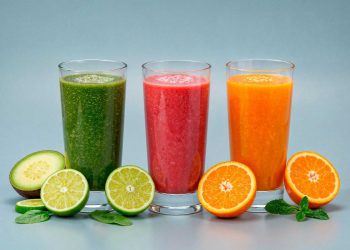Did you know that what you eat can significantly influence your brain health? It’s true! Research suggests that incorporating specific foods into your diet can enhance cognitive function, boost memory, and even protect against age-related decline. Among these brain-boosting foods, leafy greens stand out as nutritional powerhouses. So, let’s dive into five leafy greens that can give your brain a quick boost.
Contents
1. Spinach: The Classic Green
Why Spinach?
Spinach is often hailed as a superfood, and for good reason! Packed with vitamins A, C, and K, as well as folate and iron, spinach is a go-to for anyone looking to improve their overall health. But beyond its general benefits, spinach also contains antioxidants like lutein, beta carotene, and vitamin E, all of which contribute to brain health.
The Brain Benefits
Studies have shown that the antioxidants in spinach can help reduce oxidative stress in the brain, which is linked to cognitive decline. A study published in the journal Frontiers in Aging Neuroscience revealed that diets rich in leafy greens, particularly spinach, are associated with slower cognitive decline in older adults (Gomez-Pinilla, 2008).
How to Incorporate Spinach
You can easily add spinach to your diet. Toss it into smoothies, salads, or omelets. Not a fan of its taste? Try sautéing it with garlic and olive oil for a delicious side dish.
2. Kale: The Nutrient-Dense Wonder
Why Kale?
Kale has gained significant popularity in recent years, and it’s no surprise. This leafy green is loaded with vitamins, minerals, and antioxidants. It’s particularly high in vitamin K, which has been linked to improved brain function.
The Brain Benefits
Research indicates that vitamin K plays a vital role in enhancing cognitive function. A study from the National Institutes of Health suggests that higher levels of vitamin K are associated with better memory and cognitive abilities (Booth et al., 2013). Plus, kale contains compounds like sulforaphane, which may help protect against neurodegenerative diseases.
How to Incorporate Kale
Kale is versatile! You can use it in salads, smoothies, or even bake it into crispy kale chips. If you’re new to kale, try massaging it with olive oil and lemon juice to soften its texture and enhance its flavor.
3. Swiss Chard: The Colorful Brain Booster
Why Swiss Chard?
Swiss chard might not be as popular as spinach or kale, but it deserves a spot on your plate. This leafy green is rich in vitamins A, C, and K, as well as magnesium, which is crucial for brain health.
The Brain Benefits
Swiss chard is particularly high in antioxidants, which help combat oxidative stress. Research published in the Journal of Nutrition indicates that magnesium can support learning and memory (Barbagallo & Dominguez, 2010). Plus, the presence of lutein in Swiss chard may help protect against cognitive decline.
How to Incorporate Swiss Chard
You can sauté Swiss chard with garlic and olive oil, add it to soups, or blend it into smoothies. Its slightly earthy flavor pairs well with a variety of dishes.
4. Arugula: The Peppery Green
Why Arugula?
Arugula is often overlooked but is a fantastic addition to any diet. Its peppery flavor adds a unique twist to salads and sandwiches. Nutritionally, arugula contains vitamins A, C, and K, along with folate and calcium.
The Brain Benefits
Arugula is rich in glucosinolates, which have been shown to have protective effects on the brain. A recent review in the Journal of Medicinal Food highlighted the potential of glucosinolates in preventing neurodegenerative diseases (Saha et al., 2020). Plus, its high antioxidant content can help reduce inflammation, further supporting brain health.
How to Incorporate Arugula
Add arugula to salads, sandwiches, or pizzas for a peppery kick. If you’re feeling adventurous, try blending it into a pesto or a smoothie.
5. Collard Greens: The Southern Staple
Why Collard Greens?
Collard greens are a staple in Southern cooking, but they’re often underrated. Rich in vitamins A, C, and K, as well as fiber and calcium, collard greens are a nutritious choice for brain health.
The Brain Benefits
Like other leafy greens, collard greens are high in antioxidants. A study published in The American Journal of Clinical Nutrition found that diets high in leafy greens, including collard greens, are associated with better cognitive function (Morris et al., 2018). Their high vitamin K content also plays a role in improving memory and cognitive abilities.
How to Incorporate Collard Greens
You can cook collard greens in a variety of ways. Try them sautéed, steamed, or even used as wraps for sandwiches instead of bread. They can also be added to soups and stews for added nutrition.
FAQs About Leafy Greens and Brain Health
1. Can I get the same benefits from supplements?
While supplements can help, whole foods like leafy greens offer a complex array of nutrients that work synergistically. It’s always best to get your nutrients from food.
2. How can I make leafy greens more appealing?
Try different cooking methods! Roasting, sautéing, or blending greens into smoothies can change their texture and flavor. Adding spices, herbs, or dressings can also enhance their taste.
3. How often should I eat leafy greens for brain health?
Aim for at least a few servings of leafy greens per week. The more variety and frequency, the better for your brain!
4. Are there any risks associated with eating leafy greens?
Generally, leafy greens are safe for most people. However, if you’re on blood thinners, consult your doctor about vitamin K intake, as it can affect medication efficacy.
Conclusion
Incorporating leafy greens into your diet can be an easy and delicious way to boost your brainpower. Whether you prefer the classic taste of spinach or the peppery kick of arugula, there’s a leafy green for everyone. Remember, the key to cognitive health is variety and balance. So, mix and match these greens in your meals, and enjoy the benefits they bring!
This article is for educational purposes only and is not a substitute for professional medical advice. Always consult a qualified healthcare provider before making changes to your health routine.
References
-
Booth, S. L., & S. M. (2013). Vitamin K and its role in brain function. Nutrition Reviews, 71(1), 3-9. https://doi.org/10.1111/nure.12000
-
Barbagallo, M., & Dominguez, L. J. (2010). Magnesium and aging. Current Pharmaceutical Design, 16(7), 832-839. https://doi.org/10.2174/138920110790246765
-
Gomez-Pinilla, F. (2008). Brain foods: the effects of nutrients on brain function. Nature Reviews Neuroscience, 9(7), 568-578. https://doi.org/10.1038/nrn2421
-
Morris, M. C., et al. (2018). Nutritional determinants of cognitive aging in a community study. The American Journal of Clinical Nutrition, 107(4), 626-634. https://doi.org/10.1093/ajcn/nqy012
-
Saha, S., et al. (2020). The role of glucosinolates in neuroprotection: A review. Journal of Medicinal Food, 23(2), 124-131. https://doi.org/10.1089/jmf.2019.4639
Get Your FREE Natural Health Guide!
Subscribe now and receive our exclusive ebook packed with natural health tips, practical wellness advice, and easy lifestyle changes — delivered straight to your inbox.














